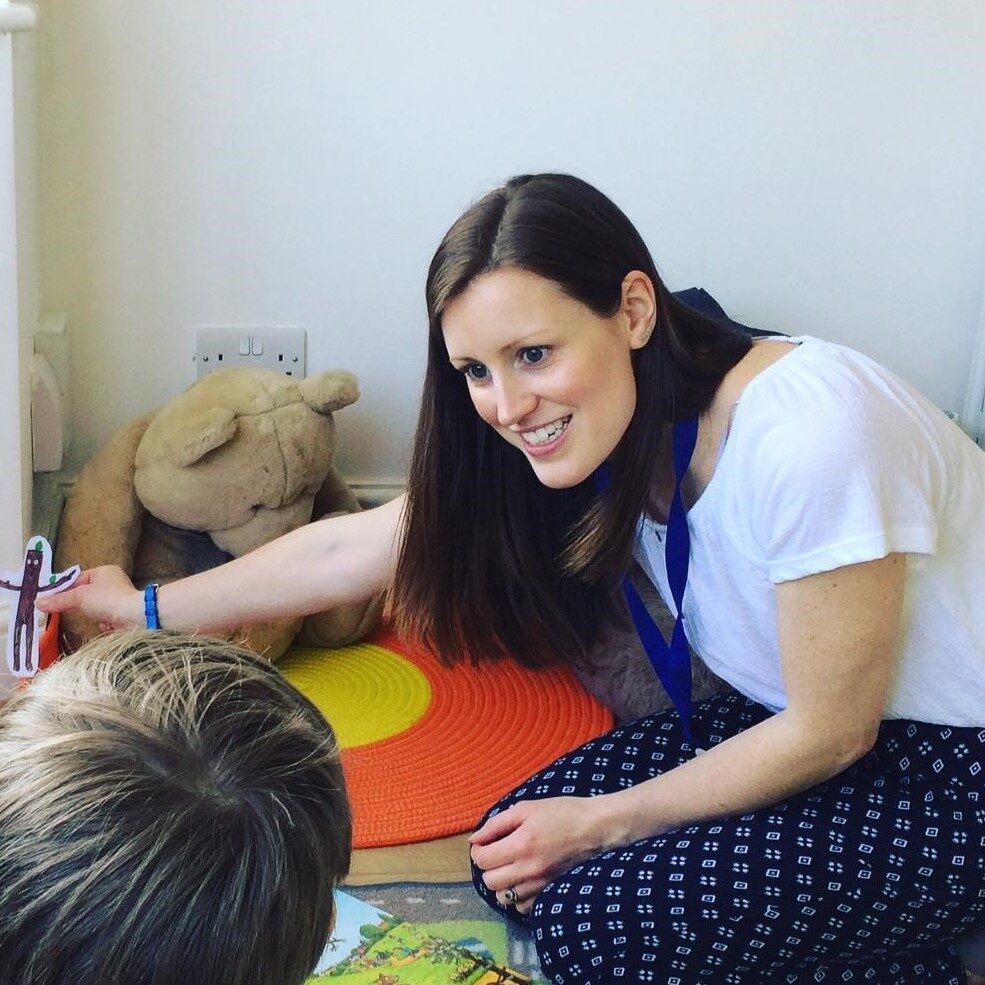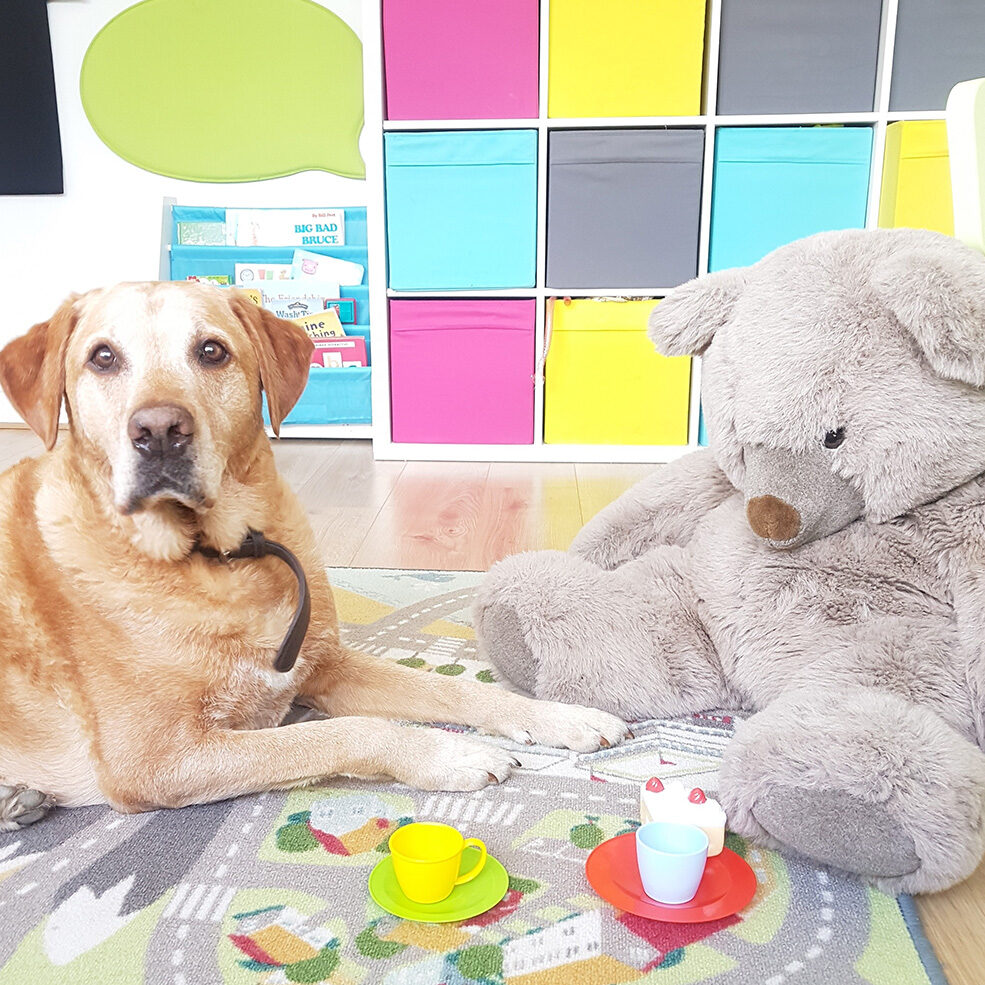“I stared out to the railing of the balcony, a spotlight setting my chest ablaze. My stomach and ribs expanded, and hot air rushed into my throat. The air in my abdomen reversed its flow, and my mouth cupped properly around the syllables of my next line. Then suddenly my brain blinked. My jaw locked. My diaphragm froze. My vocal folds flexed, trying desperately to make sound. I tapped my heel to distract my brain from the glitch”
Jeremy Hays, Actor – READ MORE
We all stammer occasionally. Sometimes our brains move too fast for our mouths, or sometimes we’re not really sure what to say. Ums and Ahhs become fillers and allow us time to put our ideas together. But when these natural dysfluencies compound and become uncontrollable (fuelling a vicious cycle of anxiety, tension, and pressure), individuals find themselves literally stuck for words.
Stammering (or stuttering) is a communication difficulty where individuals struggle to speak with ease and fluency. The causes of stammering continue to defy research; however, we are gaining more and more insight into possible causing factors, including neurological, biological, psychological and environmental influences.
Stammering affects 70 million people worldwide, with children between 3 and 8 years of age accounting for over 80% of this number. Many children will have a period of naturally occurring stammering between the ages of 2 and 4, when the greatest explosion of human language learning occurs (picture a wobbly new born giraffe finding its feet). Though, if this period of dysfluency lasts longer than 6 months, its time to seek out a speech and language therapist’s bag of magic tricks.
There are three types of stammers, each with its own appearance:
Alongside these outward breaks in speech, individuals can experience additional behaviours such as excessive blinking, body tension and internal dread. Stammering can cause extreme frustration and significant negative emotions when individuals face the pressure of communicating with others.
Stammering therapy (and the Speech and Language Therapy profession) has come a long way since the days of King George VI and, for anyone who has watched The King’s Speech, I can assure you that modern therapy methods are now deeply rooted in research (although some of Mr Logue’s ideas are still relevant today). Interventions differ depending on the age of the person, with behavioural modification techniques proving successful for younger children, and speech restructuring and solution-focused therapies often used for teens and adults.
With this in mind, there are some important things that you can do when speaking with a person who stammers:
There isn’t a ‘cure’ for stammering, however the earlier a child accesses therapy, the more likely they will find success in reducing their stammer to unnoticeable levels. For older children and adults, stammering interventions can make a positive difference as individuals learn to break the vicious cycle of negative thoughts and feelings, increasing their confidence and the overall control of their stammer.
So the next time you meet a stammerer, have patience and let them speak. Because in a world that can’t stop talking, silence is golden.
I honestly cannot recommend or speak highly enough of this Kids First and everyone that works there. Not only did you help to diagnose A with Autism at the earliest opportunity to enable early intervention but you provided that early intervention that I really believe has laid some strong foundations for his whole future.
Most importantly of all, you have given us so much support and helped us as a family to really understand our son and his needs and that’s helped us to be the best parents we can for him. Every other place we have been be it NHS, clubs or other charities etc have all praised us and A for the things that really can only be credited to the hard work of Kids First.
Everything and I mean everything that our NHS SaLT praised in A was skills taught from our lovely Therapists here! I am forever grateful that we found this little gem and to everyone who has been involved with A. He looks forward to his sessions and often asks to go even when we don’t have one scheduled. His progress is absolutely unbelievable in the year we have been coming and I have and will continue to recommended Kids First to lots of other families.


Kids First feels like a home from home
‘Where Chestee?’ is commonly the first question asked by one of our early years clients at the Kids First Centre in Kenley. Chester (or ‘Chestee’ as he is referred to by this particular child) is the therapy dog who belongs to Emma, the practice manager. He spends his days at the centre, waiting for children to visit, stroke, play, feed, and, as one boy did, sign to him! Chester is just one of the many reasons Kids First feels like a home from home experience for therapists, children and parents alike. The fact that the practice is set in a converted house, with a beautiful garden and a lounge for a waiting room also adds tremendously to this- not what we imagine when we think of the word ‘clinic.’ Kids First is a ‘branch’ of the company Words First Limited, which supplies speech and language therapy services in schools across and near London.
Having worked in primary, secondary and post-16 provisions since qualifying as a speech and language therapist in 2010; making the move to the ‘clinic’ setting, which I hadn’t experienced since a placement in my first year of training, was both exciting and terrifying. A whole new way of working, a younger client base and parents attending intervention sessions were just some of major changes I was going to experience.
However, it turns out, 18 months later; the aspects I was most nervous about are some of the most enjoyable and rewarding parts of my role! As a parent of a young child myself; I find building relationships with the parents of our clients incredibly rewarding and have many who will email me with videos or updates of their child’s progress between their sessions; and in some cases, after intervention has finished. Sharing in the experiences, challenges and emotions that children and their parents or carers face and knowing that you are making something of a difference is one of the most rewarding feelings.
Thinking outside the box
‘Thinking outside the box’ is something speech and language therapists are required to do constantly in our role; this career move has really helped me to do this. Whether it’s developing turn taking skills through throwing a ball for Chester; helping children with their ability to understand and follow instructions with a cooking activity in the kitchen (rice crispy cakes always go down well!) or using half a Christmas tree from the loft (yes, really) to create a forest for a ‘Going on A Bear Hunt’ story sack; the team at Kids First are constantly creating and using different ideas to keep therapy ‘fresh’ and engaging.
When I started writing this article, my aim was to focus on a specific area of speech and language therapy such as thinking outside of the box, transferable skills or being able to ‘teach an old dog new tricks’ (me being the dog in this case, as opposed to Chester!). These are all points that I touch on; however, I then realised that actually the reason I felt inspired to write for ‘My Working Life’ is because I love working somewhere that is unique, and as cliché as it sounds, I am completely inspired by the environment, my colleagues and of course the amazing children and parents that come to us. Almost 10 years in the field of speech and language therapy and I continue to thrive on the unpredictability, the challenges and the fun that comes with this role. I think it’s easy to feel cemented in a specific role and whist that can be great and enable us to specialise in a certain area, I have come to learn recently that actually venturing into the unfamiliar can bring out skills and passions we weren’t even aware we had!
Kids First offers an amazing service. Their therapists are enthusiastic, committed and go the extra mile to ensure that our pupils individual needs are met.
The pupils that we have referred have all made incredible progress because the therapists are continually reviewing their needs and sharing any follow up activities with me and my teaching staff.
All of the pupils that work with their therapists look forward to their sessions and ask us when they are coming again!
I have found Lisa (and you Emma) to be so kind, patient and gentle with S. You see her progress and celebrate with me and build on her strengths. We both feel welcome and accepted, and I cannot thank you both enough for all the support and encouragement you continue to offer us. It is a real team approach and you respect and support me as a parent, always listening to me and explaining as much as I need. Thank you!!